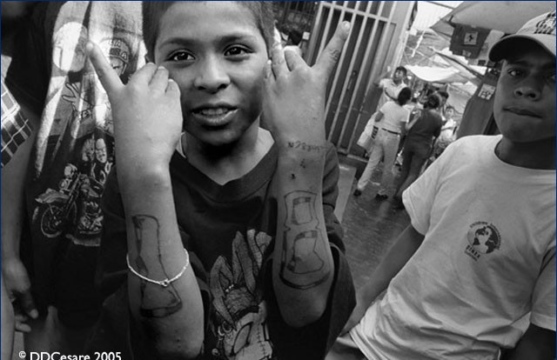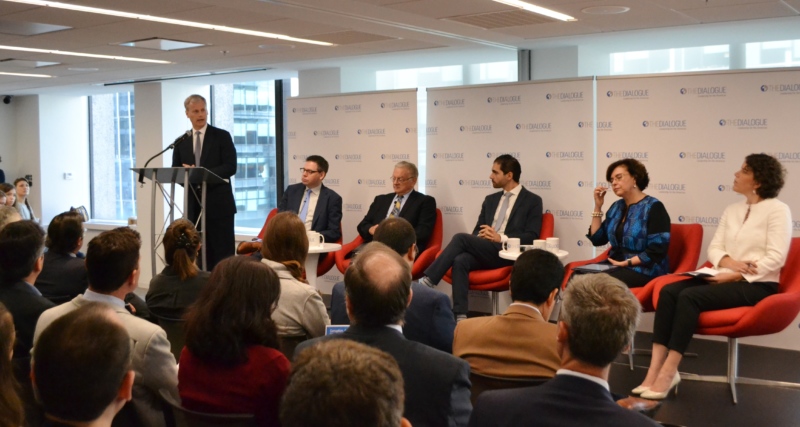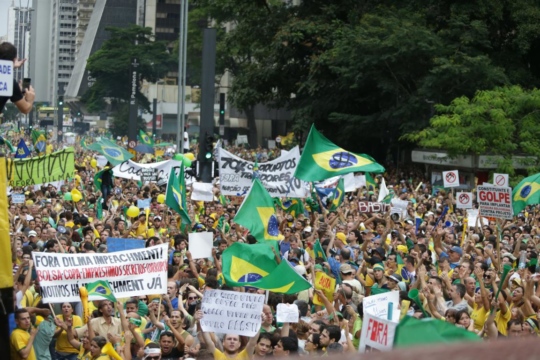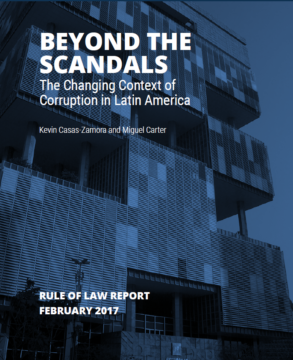
Can the UN Win the Battle Against Impunity in Guatemala?
Should CICIG’s mandate be extended? What factors are shaping the debate, and what will most likely be the outcome?
On September 28, the Inter-American Dialogue partnered with the Council of the Americas to host an event titled Corruption and Crisis in Guatemala: The Past, Present, and Future of CICIG. The discussion was moderated by Michael Camilleri, director of the Peter D. Bell Rule of Law Program at the Inter-American Dialogue, and featured panelists Eduardo Stein, former vice president of Guatemala; Connie de Paiz, vice president of the Guatemalan Exporters’ Association and director for the Center for Corporate Social Responsibility Action in Guatemala (CentraRSE); Rachel Samren, executive vice president of Millicom; and Eric Jacobstein, senior policy advisor in the House Committee on Foreign Affairs. After opening remarks by Michael Shifter and Eric Farnsworth, the vice president of the Council on the Americas, the panelists discussed Morales’ motivations for ending CICIG’s mandate and the implications of a future without CICIG on democratic institutions and the investment climate.
The discussion began with an analysis of Morales’ motivations for refusing to renew CICIG’s mandate and forcing CICIG Commissioner Iván Velásquez to leave Guatemala. Eduardo Stein argued that Morales’ ultimate goal is to get rid of CICIG entirely: his administration had already announced downgrading the influence of CICIG until the mandate ends in 2019. In effect, CICIG would be operating as a training center and no longer investigate top criminal cases as it has done in the past, and as is outlined by the mandate. Stein also noted that using US-donated military jeeps to surround CICIG’s headquarters as he made his announcement was a carefully crafted set of public impact images to bring back memories of past repression in Guatemala. Both a demonstration of power and an intimidation tactic, Morales was able to display that he has the full support of the country’s military forces.
Eduardo Stein offers remarks at the beginning of our #CICIGcrisis event. "President Morales believes the commissioner is a threat to national security"
— The Inter-American Dialogue (@The_Dialogue) 28 de septiembre de 2018
De Paiz and Samrén provided an economic perspective and discussed the implications of a Guatemala without CICIG on the private investment climate. They agreed that a strong rule of law is critical for economic development. De Paiz explained how corruption decreases efficiency and competitiveness of the market and adds approximately 10% to the cost of business. She also warned that corruption negatively impacts the investment climate because a lack of transparency reduces the likelihood for foreign investment due to increased risk. De Paiz praised CICIG for helping restore confidence for outside investors and for setting benchmarks in how the private sector should operate; however, she said confidence would not be maintained without CICIG, and its absence would have negative effects on economic development. Samrén explained how Millicom, the largest mobile provider in Guatemala, is concerned with Morales’ dismantlement of CICIG. Although the company has a zero-tolerance policy toward corruption, she argued that a transparent environment that CICIG has helped create is critical for businesses to operate efficiently and foreign investment to increase.
.@Rachelsamren "Corruption harms economic advancement." ~ $1.5 trillion is paid on bribes alone, but that money could be spent on social or economic development projects. #CICIGcorruption pic.twitter.com/oNYQNuhIs2
— The Inter-American Dialogue (@The_Dialogue) 28 de septiembre de 2018
Jacobstein gave insight into the US perspective on the future of CICIG. He explained how CICIG received bipartisan support when it was first launched in 2007 because of its role in fighting organized crime and drug trafficking. However, he stressed that CICIG has never been a priority for Congress and that now vocal opponents of CICIG are prevailing. Although the administration has demonstrated an increasingly divided position on CICIG, Jacobstein laid out two concrete steps that Congress will take in the upcoming months. First, foreign assistance will continue to be conditioned on the Guatemalan government cooperating with commissions against impunity; second, Congress will push for the application of Magnitsky sanctions that target corrupt individuals and human rights violators and authorizes the US government to freeze their assets.
The Q&A section included a question as to the future of Guatemala in the context of human rights if CICIG is removed indefinitely. Stein answered this question by alluding to broader concerns of the implications of a future without CICIG on the international system. Stein argued that CICIG should not be analyzed in a vacuum, but that Morales’ actions are undoing the constitutional court, undoing checks and balances, and undoing transparency and accountability in Guatemala. He warned that Guatemalan congressmen have called for Guatemala to leave the UN calling it a tool for intervention. Therefore, the fight over CICIG is not only about the rule of law in Guatemala but can be viewed as an attack on the international system.
Should CICIG’s mandate be extended? What factors are shaping the debate, and what will most likely be the outcome?
The emergence of this new normative edifice in favor of transparency and accountability is one of the most important, yet unsung, stories of the consolidation of democracy in Latin America.
What plausible explanations are there for the unprecedented, anti-corruption social and institutional reactions recently seen in Latin America?
 Irene Estefania Gonzalez / Inter-American Dialogue
Irene Estefania Gonzalez / Inter-American Dialogue

